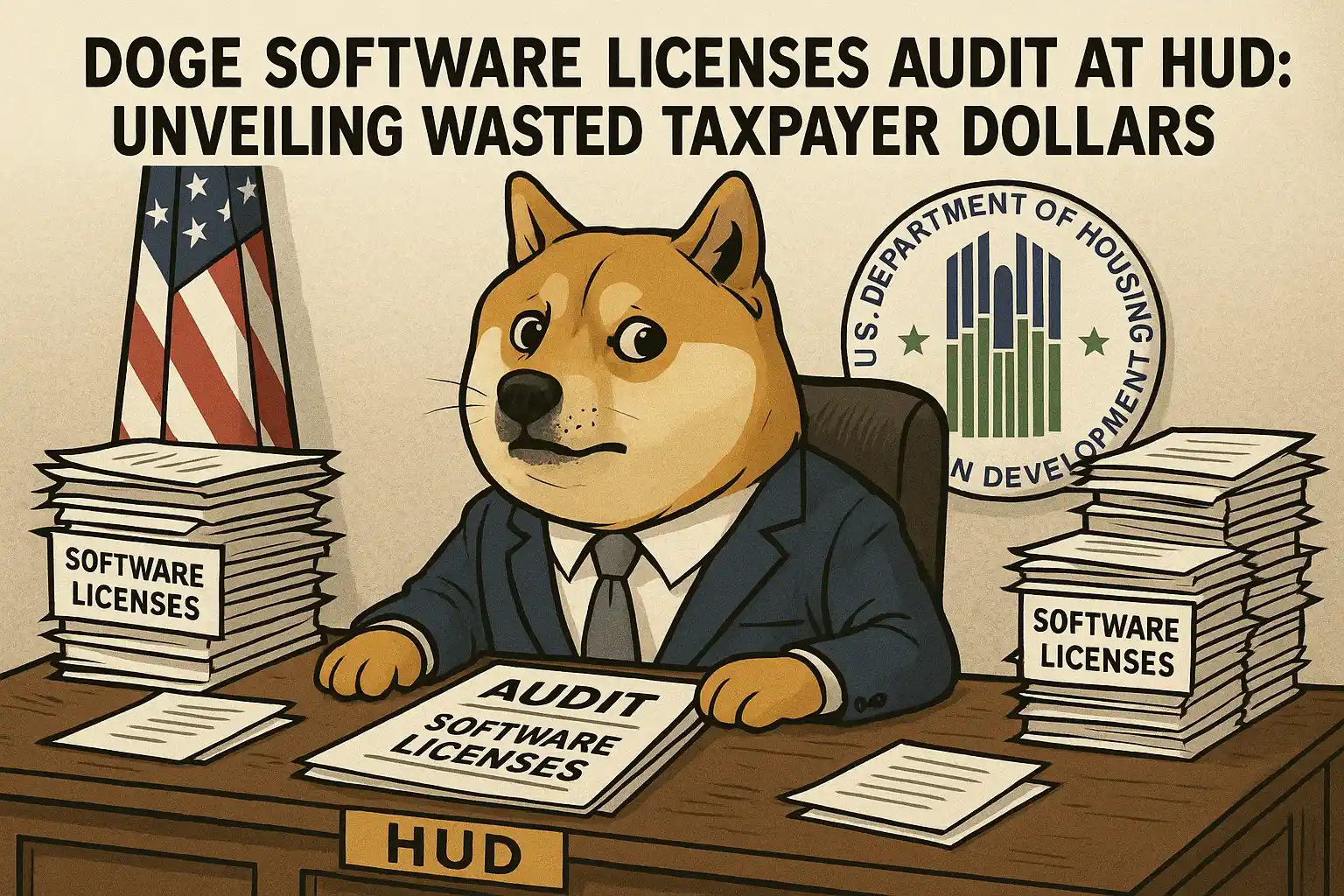In 2025, the Department of Government Efficiency (DOGE) launched a pivotal audit within the U.S. Department of Housing and Urban Development (HUD), unveiling a significant waste of taxpayer funds due to the excessive purchase of software licenses. The audit highlighted an alarming number of unused and underutilized software licenses, leading to concerns about inefficiency, poor management, and financial oversight within federal agencies. The findings were a wake-up call for government agencies about the importance of proper software asset management.
Key Findings of the Audit
1. Excessive Software Licenses
The audit revealed that HUD had purchased far more software licenses than necessary, leading to inflated expenditures. Some of the major discrepancies included:
-
35,855 ServiceNow licenses, with only 84 active users.
-
11,020 Adobe Acrobat licenses, yet zero active users.
-
1,776 Cognos licenses, with only 325 users.
-
800 WestLaw Classic licenses, but only 216 users.
-
10,000 Java licenses, but only 400 active users.
These findings demonstrated clear overspending, with vast quantities of software licenses sitting unused, unnecessarily burdening the federal budget. These discrepancies suggest a lack of strategic procurement planning, where agencies procured licenses based on projections or vendor discounts without assessing actual usage needs.
2. Underutilization of Acquired Licenses
Further analysis revealed that, in many instances, software licenses were acquired in bulk to secure discounts or as part of long-term agreements. However, these licenses were not used to their full potential. For example, ServiceNow licenses were procured for a larger workforce, but the actual number of active users was far lower, resulting in wasteful spending.
Such underutilization was not limited to one or two licenses but rather extended across multiple software tools, leading to millions of dollars in wasted taxpayer funds.
3. Redundancy Across Agencies
In addition to excessive purchasing, the audit uncovered redundancy in software tools across various federal agencies. For instance, the General Services Administration (GSA) had 37,000 WinZip licenses despite employing only 13,000 staff members. This redundancy added unnecessary layers of complexity to the government’s IT systems, with multiple agencies relying on overlapping software solutions to perform similar tasks.
This kind of redundancy not only wastes resources but also complicates software management, training, and support, making it harder for agencies to remain agile and responsive.
Implications for Taxpayers
The findings from DOGE’s software license audit have far-reaching implications for taxpayers. The unused and underutilized licenses represent a significant drain on the federal budget, costing millions of dollars that could otherwise have been allocated to more critical services. At a time when government funding is under increasing scrutiny, the inefficiency in software asset management has raised questions about the stewardship of taxpayer money.
By continuing to pay for licenses that are neither necessary nor fully utilized, the government misses an opportunity to redirect funds toward essential services, including housing programs, education, and healthcare.
Steps Toward Reform
In response to the audit’s findings, HUD, along with other affected agencies, has pledged to take corrective actions:
-
License Reduction: Agencies are now committed to eliminating unused or underutilized software licenses, ensuring that they only pay for what is truly needed.
-
Centralized Management: The federal government is working on implementing centralized software asset management systems. This will allow for more efficient tracking, monitoring, and auditing of software usage across agencies.
-
Policy Overhaul: HUD and other agencies are revising their procurement policies to ensure that future software purchases are more closely aligned with actual needs. This includes establishing clearer guidelines for software license purchases and prioritizing tools that provide measurable value.
These steps aim to enhance fiscal responsibility, increase transparency, and ensure that taxpayer dollars are spent more efficiently.
Long-Term Impact and Lessons Learned
The DOGE audit has not only shed light on the inefficiency within HUD and other federal agencies but also sent a clear message about the need for better software asset management across the government. While the immediate focus is on reducing unnecessary spending, the broader goal is to build a more accountable and responsive federal procurement system.
In the long term, the lessons from this audit could help shape policies that prevent similar inefficiencies from occurring in the future. Government agencies will likely invest more in software asset management tools and training, ensuring that they make informed decisions when purchasing licenses.
Gramhir .pro: Unlocking Instagram Insights and AI-Driven Creativity
Conclusion
The DOGE software licenses audit HUD has uncovered a massive waste of taxpayer funds, highlighting the inefficiencies of federal software procurement and management processes. With millions of dollars wasted on unused or underutilized licenses, the need for reform is clear. Through corrective actions, such as reducing excessive licenses, centralizing management, and revising procurement policies, the government can better serve the public and ensure that taxpayer dollars are spent wisely. This audit serves as a critical reminder that even the smallest inefficiencies can have large financial consequences, particularly in a system as vast and complex as the U.S. government.
By embracing transparency, accountability, and smart procurement practices, federal agencies can achieve better results, improve public trust, and ensure that resources are used effectively for the benefit of all citizens.
